Starting Problems In Car can be incredibly frustrating, leaving you stranded and unsure of what to do. Whether it’s a click, a crank, or complete silence, this guide will help you diagnose and potentially fix those pesky car starting issues. We’ll cover common causes, troubleshooting steps, and when it’s time to call in a professional. So, let’s dive in and get your car back on the road.
Common Causes of Starting Problems in Car
Several factors can contribute to starting problems in car. Understanding these common culprits is the first step towards a solution. These range from simple fixes like a dead battery to more complex issues like a faulty starter motor.
- Dead Battery: Perhaps the most common reason for starting problems in car is a dead battery. This can be due to leaving lights on, extreme temperatures, or simply an old battery that needs replacing.
- Faulty Starter Motor: The starter motor is responsible for cranking the engine. If it’s failing, you might hear a clicking sound or nothing at all when you turn the key.
- Ignition System Problems: The ignition system provides the spark needed to ignite the fuel. A faulty ignition switch, coil, or spark plugs can prevent the engine from starting.
- Fuel System Issues: If the engine isn’t getting fuel, it won’t start. This could be due to a clogged fuel filter, a malfunctioning fuel pump, or a bad fuel injector.
- Electrical Problems: Corrosion, loose connections, or damaged wiring can disrupt the electrical flow needed for starting.
- Alarm System Malfunction: Sometimes, a malfunctioning alarm system can prevent the car from starting as a security measure.
After this initial overview, we will delve into more detail about each of these potential issues. Understanding the underlying mechanics will empower you to troubleshoot effectively. google autonomous car problems
Troubleshooting Starting Problems in Car
Now that we’ve identified some common causes, let’s explore how to troubleshoot starting problems in car. Remember, safety first! Always take necessary precautions when working on your vehicle.
Checking the Battery
- Visual Inspection: Look for any signs of corrosion or damage to the battery terminals and cables.
- Voltage Test: Use a multimeter to check the battery voltage. A healthy battery should read around 12.6 volts.
- Jump Start: If the battery is dead, try jump-starting the car. If the car starts, this confirms the battery is the issue.
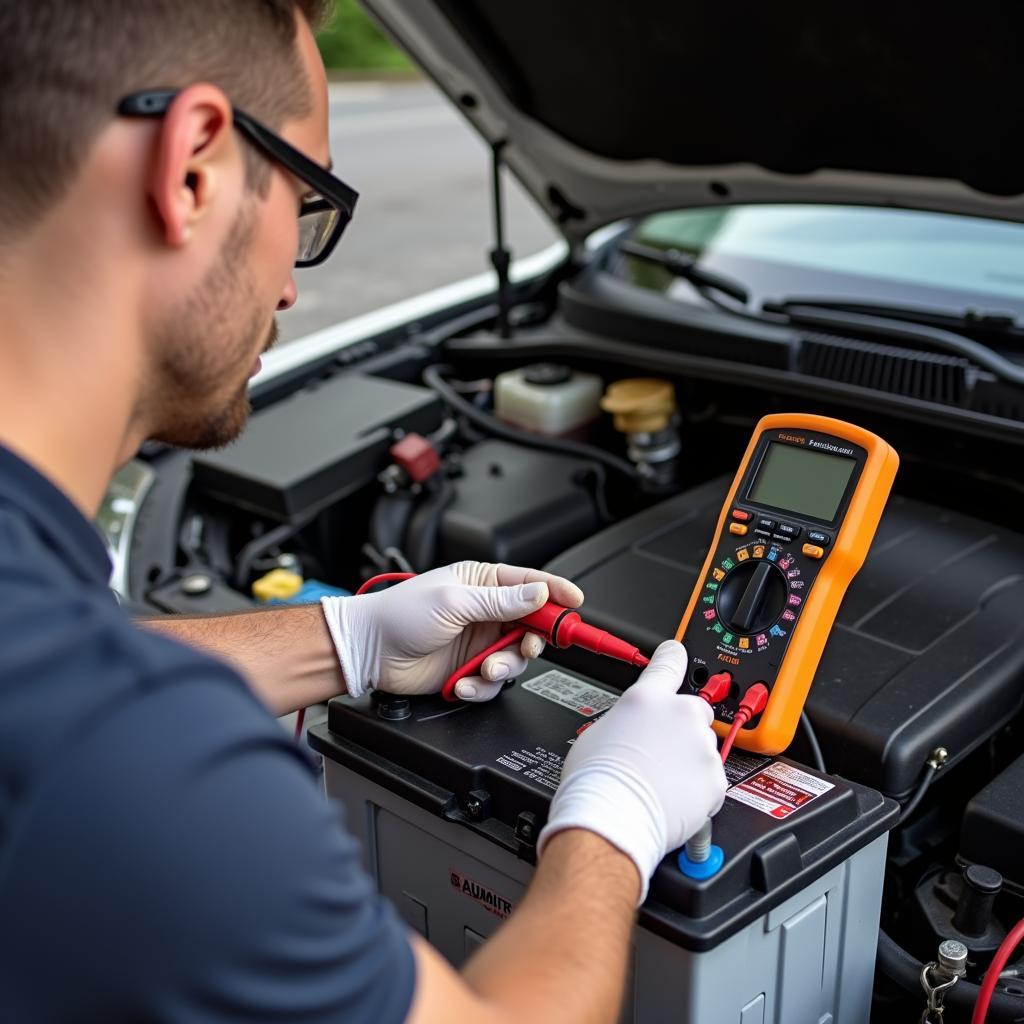 Checking the car battery
Checking the car battery
Inspecting the Starter Motor
- Listen for Clicks: When you turn the key, listen for a clicking sound. This could indicate a faulty starter solenoid.
- Tap the Starter: Gently tap the starter motor with a hammer while someone tries to start the car. This can sometimes temporarily dislodge a stuck starter.
- Starter Test: A professional can test the starter motor using specialized equipment to determine if it’s functioning correctly.
Examining the Ignition System
- Check the Ignition Switch: Try wiggling the key in the ignition switch. A loose or worn-out switch can cause starting problems.
- Test the Ignition Coil: A faulty ignition coil can prevent the spark plugs from firing. A mechanic can test the coil using a multimeter or an oscilloscope.
- Inspect Spark Plugs: Check the spark plugs for wear and tear, fouling, or damage.
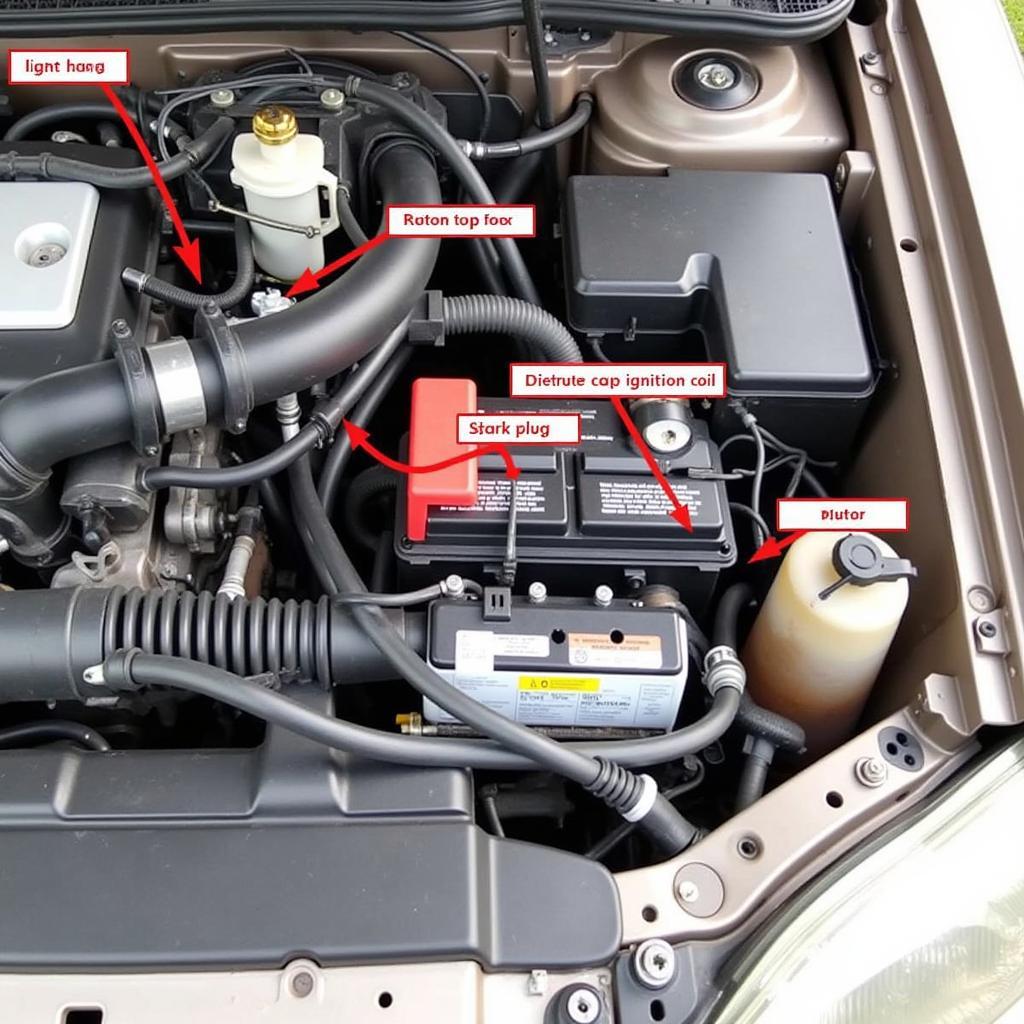 Components of the car ignition system
Components of the car ignition system
Diagnosing Fuel System Issues
- Listen for the Fuel Pump: When you turn the key to the “on” position (without starting the engine), you should hear a faint whirring sound from the fuel pump.
- Check the Fuel Filter: A clogged fuel filter can restrict fuel flow to the engine.
- Inspect Fuel Injectors: Malfunctioning fuel injectors can prevent fuel from being delivered to the cylinders.
John Smith, a seasoned automotive technician, advises, “Don’t overlook the simple things. A loose battery cable or corroded terminal can be the culprit behind starting problems in car.”
When to Seek Professional Help
While some starting problems in car can be easily resolved at home, more complex issues require professional expertise. If you’ve tried basic troubleshooting and your car still won’t start, it’s time to call a qualified mechanic. Attempting advanced repairs without proper knowledge and tools can cause further damage and be dangerous.
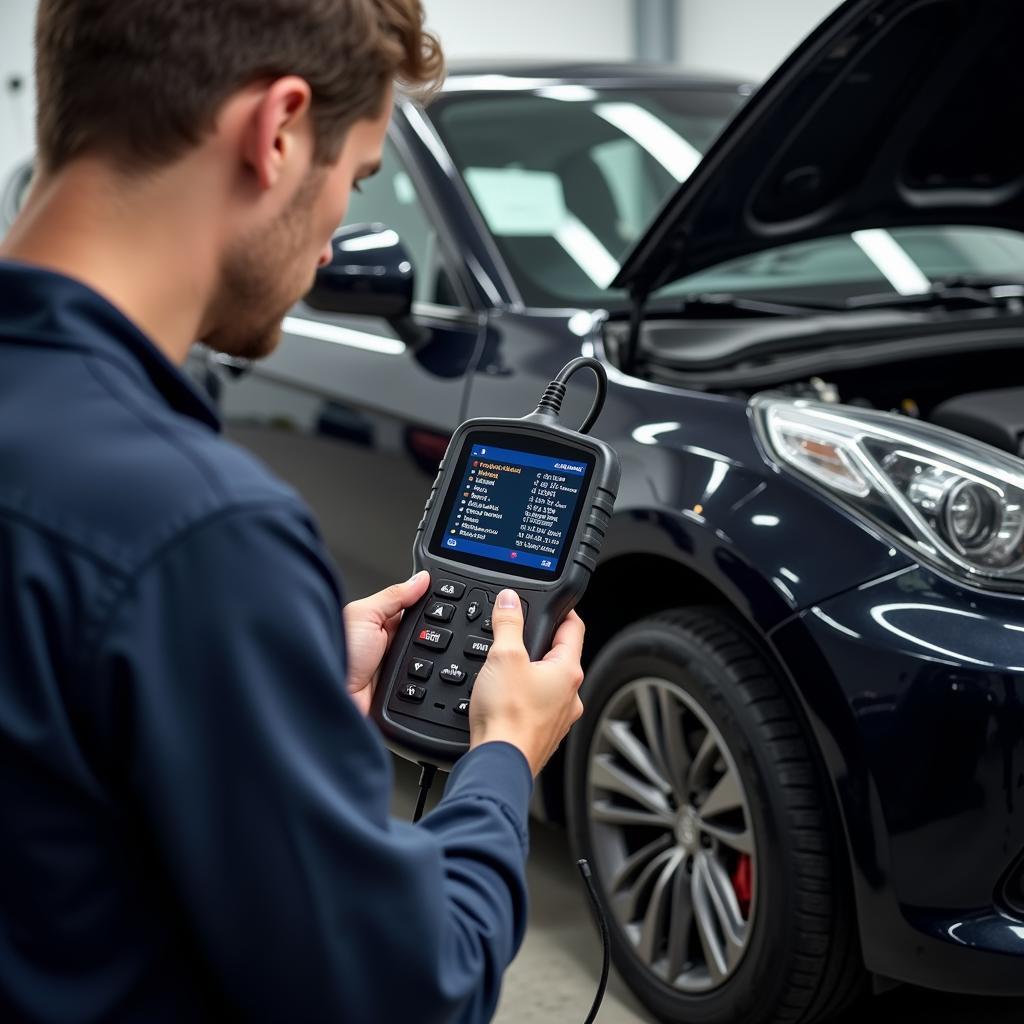 Mechanic diagnosing a car starting problem
Mechanic diagnosing a car starting problem
Conclusion
Starting problems in car can be a real headache, but with the right approach, you can often identify and resolve the issue. By understanding the common causes and following the troubleshooting steps outlined in this guide, you can get back on the road quickly. However, if you’re unsure or the problem persists, don’t hesitate to contact AutoTipPro at +1 (641) 206-8880 or visit our office at 500 N St Mary’s St, San Antonio, TX 78205, United States for expert assistance. We’re here to help!
FAQs
- What’s the most common cause of starting problems in car? A dead battery is often the culprit.
- How can I tell if my starter motor is bad? A clicking sound when turning the key is a common sign of a faulty starter.
- Can a bad alternator cause starting problems? While a bad alternator can drain the battery, it usually won’t prevent the car from starting initially.
- What should I do if my car won’t start after a jump start? There may be a more serious issue, such as a faulty starter or ignition system. Seek professional help.
- How can I prevent starting problems in car? Regular maintenance, including battery checks and cleaning terminals, can help prevent future starting issues.
- Is it safe to drive with starting problems? It’s best to avoid driving until the issue is resolved, as it could become worse or leave you stranded. google autonomous car problems
- How much does it cost to fix starting problems in car? The cost depends on the underlying cause and can range from a simple battery replacement to more expensive repairs.
Maria Garcia, an electrical engineer specializing in automotive systems, emphasizes, “Regularly checking your car’s electrical system can prevent many starting problems down the road.” Don’t wait until you’re stranded to address potential issues.




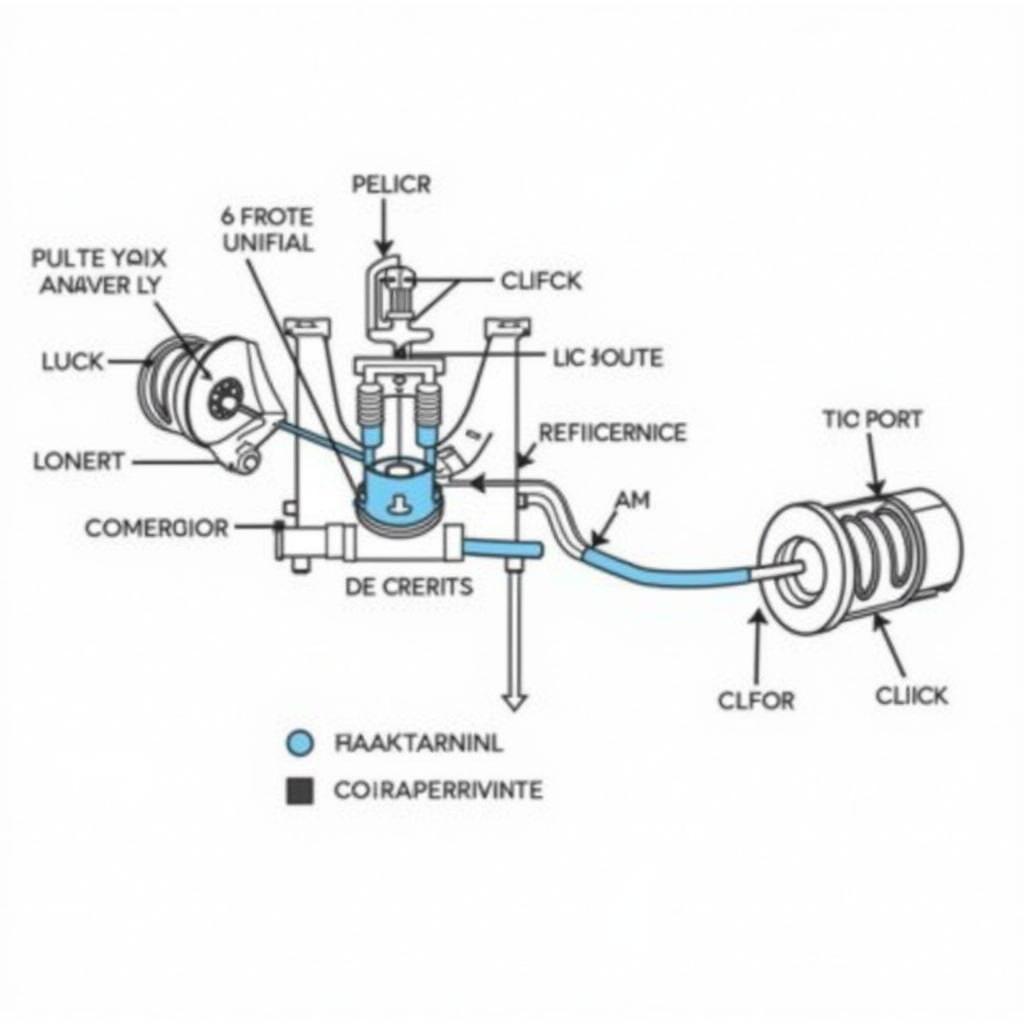
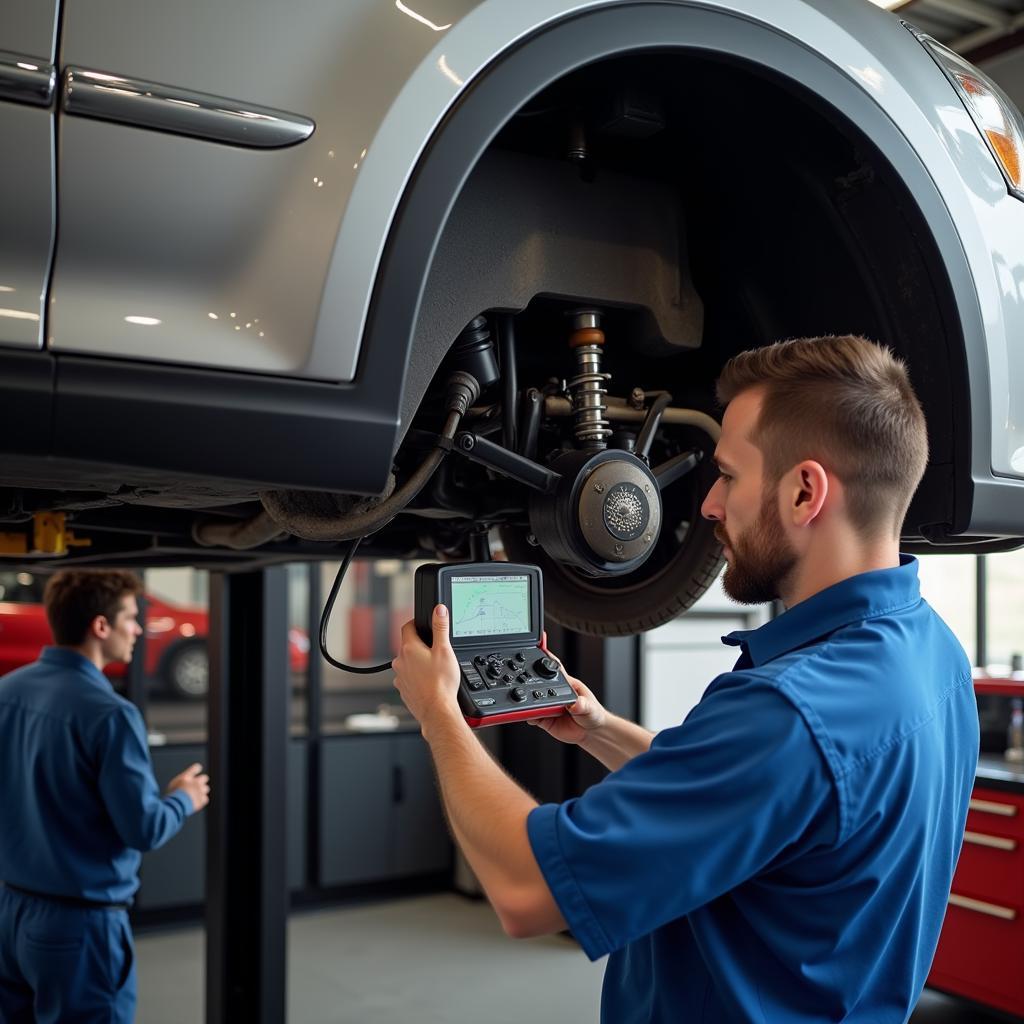
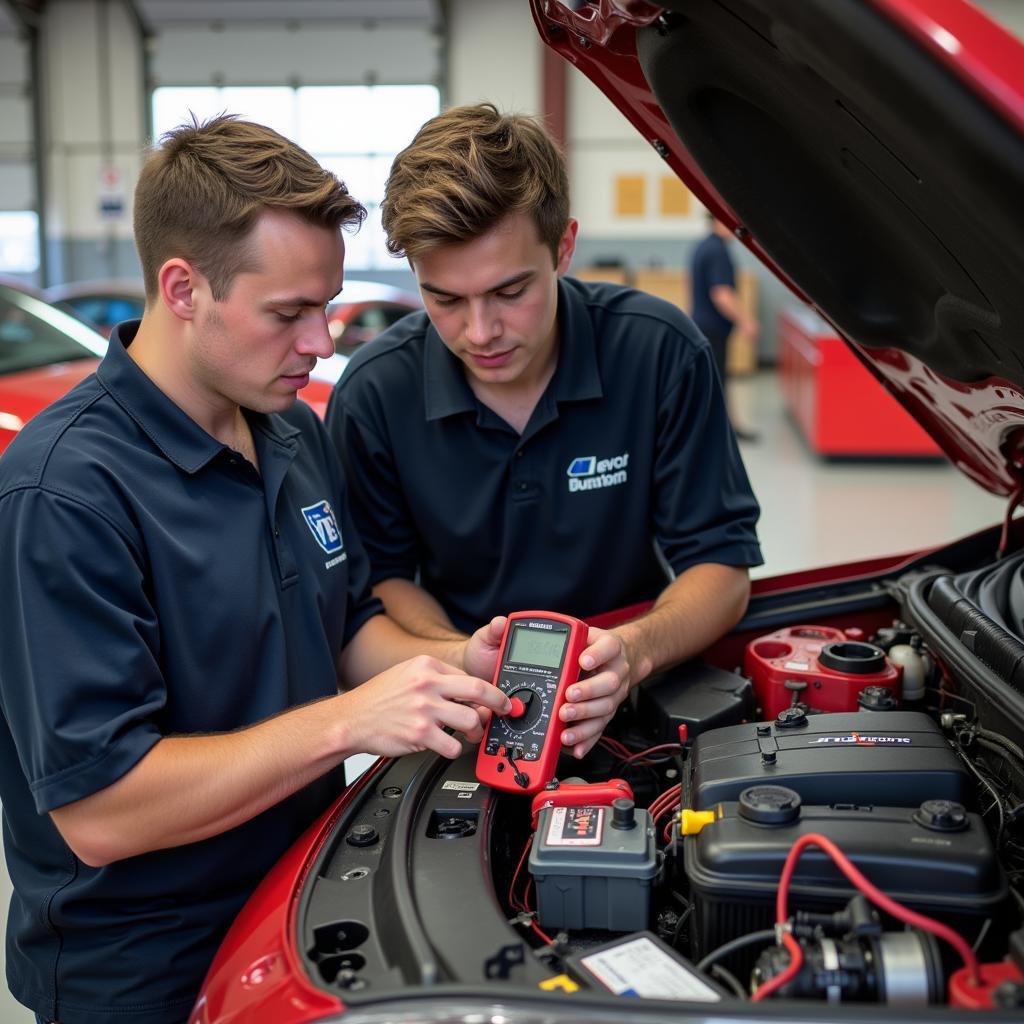
Leave a Reply